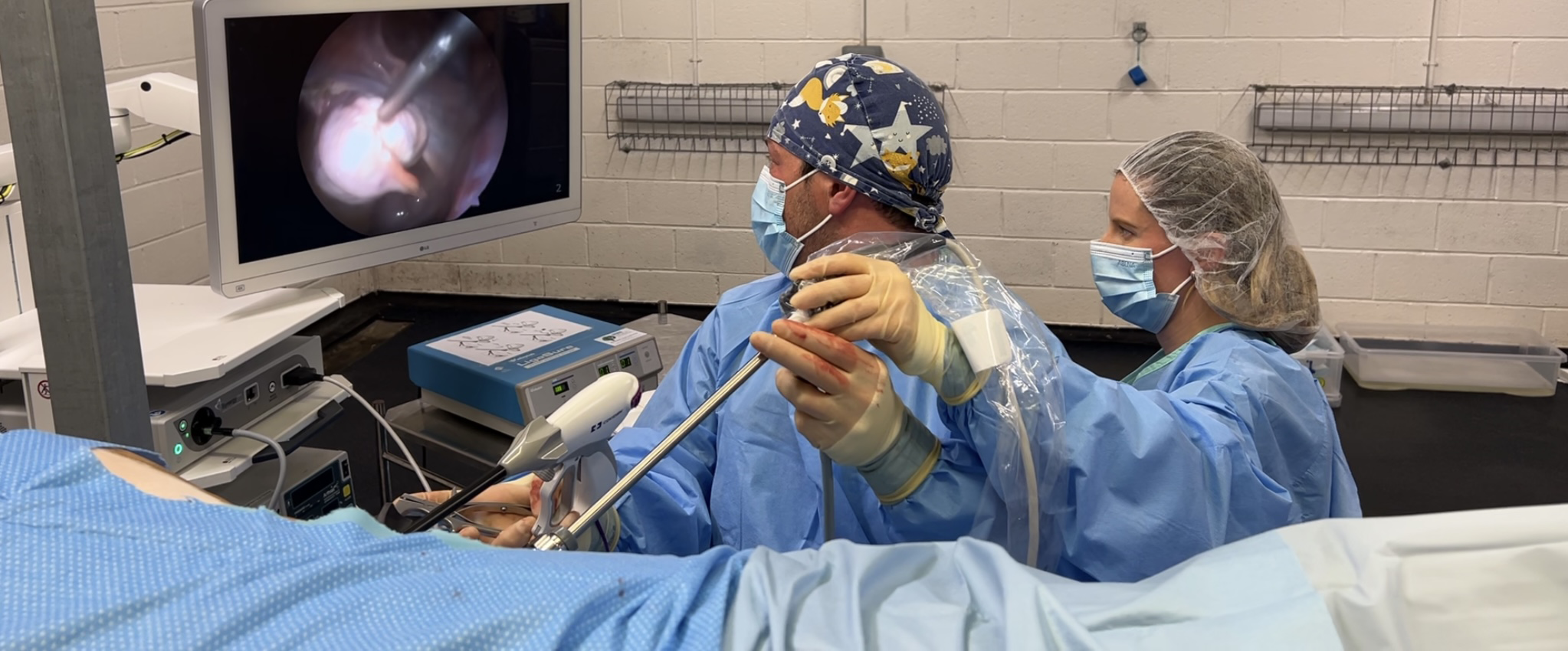What is colic?
Colic is a vague term to describe any signs of abdominal (belly) pain in horses. It is usually caused by gastro-intestinal problems, but similar signs can be seen with liver/kidney or bladder problems
What are the signs of colic?
The signs of colic will vary massively between horses. Stoical, tough horses will often show little pain, even with serious conditions whereas other less tough horses will show violent colic with a minor issue. The main signs are:
- Flank watching
- Pawing the ground
- Restlessness
- Inappetance (of food)
- Lip curling (elevating the upper lip)
- Recumbency (lying down) This can range from lying down then getting up again quickly to lying flat for long periods
- Stretching out as if to urinate or dog-sitting
- Sweating
- Rolling (this can be violent)
- Rapid breathing
- Dull, quiet attitude
- Abrasions to the head, legs and pelvis from rolling
What to do if your horse has colic
Colic – although it can be a life-threatening condition, many horses respond to medication and need no further treatment so try and stay calm
If your horse is showing mild signs of colic you can try gentle walking for 5 to 10 minutes (do not trot or canter) if it is safe to do so
If your horse is very uncomfortable or does not improve within 10 minutes phone the vet and discuss with the vet on call
The key to successful treatment of colic is time – especially if the colic is severe and may require surgery
Do not give any medication unless under direct instruction from your vet
It is also wise to take away any feed, leave free access to water and also importantly do not get hurt (a stable is surprisingly small when a horse is rolling around in pain)
How do we investigate/ diagnose colic?
There are many different types of colic. Certain types of horse can be more prone to some types of colic and the treatment and outcome varies
The main aim of initial investigation is to try to decide if we think the problem can be managed with medical treatment or if surgery is possibly required
Where horses require surgery – this should be performed as soon as possible
Basic initial diagnostics include a full physical examination and a rectal examination which allows us to feel some intestinal structures. Further investigations if required include: blood tests, passing a tube into the stomach to release gas/fluid build up, sampling the fluid which bathes the intestines and an ultrasound examination of the abdomen to assess organs and intestines
How do we treat colic?
Fortunately many cases (approximately 90%) of colic cases can be treated with pain relief and other medical therapies, usually at home. Pain killers are carefully given to control pain but to ensure more severe colic signs are not masked. Depending on the type of colic other treatments such as giving spasmolytic drugs to stop intestinal spasms can be given and in case such as large intestinal impactions, fluids given by naso-gastric tube may be given to help clear the firm contents
More serious cases or horses which do not respond to pain killers and shows ongoing signs of colic may require hospitalisation and further investigation. In many cases, again medical management is required and more intensive therapies such as intravenous fluids (a drip) can be given at the hospital alongside careful monitoring of the horse’s condition. In approximately 10% of cases surgical intervention is required to save the life of the horse. Surgery is a big decision and the prognosis and cost need careful consideration. Performing surgery early, if required, will maximise survival and also reduce the costs of aftercare
How can colic be prevented?
Many causes of colic are preventable but others are not.
The things you can do to help minimise your horse’s risk of colic are:
- Ensuring a fresh, constant supply of drinking water – especially important in winter when buckets, troughs and drinkers may be frozen
- Keep feeding to a routine – make diet changes gradually over 10 – 14 days and try to stick to regular feeding times
- Turnout regularly and routinely – even in poor weather horses need turnout or exercise for at least an hour a day, increased stabling and box rest has been shown to increase the likelihood of colic
- If box rest is needed – try to hand pick grass for your horse and carefully monitor droppings for signs of reduced number or increased dryness
- Regular dental care – dental checks should be performed at least annually
- Parasite control/worming – regular worm egg counts and appropriate treatment and pasture management is of paramount importance – please discuss your horse’s individual requirements with your vet
- Monitor your horse’s appetite and general health


